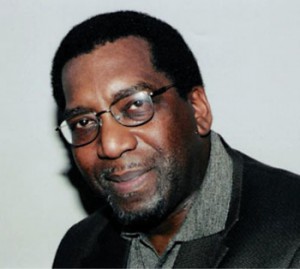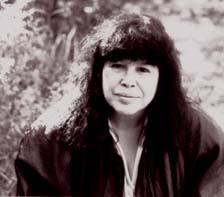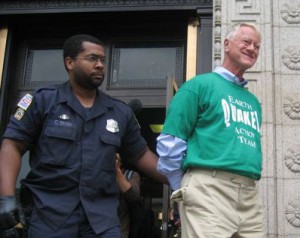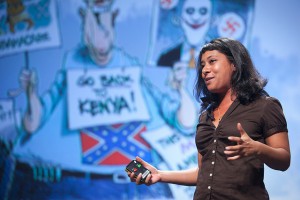2013 Session 4: Introduction to Social Change Organizing – Readings
2013 Anne Braden Anti-Racist Training Program
Session 4: Introduction to Social Change Organizing
Required Readings
- Marge Piercy, “The Low Road” from The Moon Is Always Female. (1 page PDF*: The_Low_Road_Piercy). (bio).
- Charles Payne, “Slow and Respectful Work: Organizers and Organizing” from I’ve Got the Light of Freedom: The Organizing Tradition and the Mississippi Freedom Struggle. (hard copy). (bio).
- Carol Mueller, “Ella Baker and the Origins of Participatory Democracy” from Vicki Crawford, Jacqueline Rouse and Barbara Woods, Women in the Civil Rights Movement: Trailblazers and Torch Bearers 1941–1965. (15 page PDF: Mueller-Ella-Baker-and-origins-of-participatory-democracy). (bio).
- Catalyst Project, “What We Mean by White Antiracist Organizing”, Notes from a talk at the US Social Forum 2007. (2 page PDF: Catalyst_Tools_for_White_Anti-Racist Organizing).
- Catalyst Project, review the organizing terms in the Glossary.
- George Lakey, “Strategizing for a Living Revolution” from David Solnit, ed., Globalize Liberation: How to Uproot the System and Build a Better World. (On the web at History Is A Weapon; also 27 page PDF: Strategizing For A Living Revolution). (bio).
- Subcomandante Marcos, “Globalize Hope”. (On the web at Zspace; also 2 page PDF: Globalize Hope). (bio).
- George Katsiaficas, “Organizations and Movements” (8 page PDF: Katsiaficas_Organizations_and_Movements), “The Reasonability of Uprisings” (8 page PDF: Katsiaficas_Reasonability_of_Uprisings) and “Elite Use of Uprisings” (3 page PDF: Katsiaficas_Elite_Use_of_Uprisings) from Asia’s Unknown Uprisings Volume 1: South Korean Social Movements in the 20th Century. (bio).
- Rinku Sen, “Community Organizing—Yesterday and Today” from Stir It Up. (29 page PDF: Community_Organizing_Yesterday_Today_Sen). (bio).
Recommended Readings
- Chris Day, “Dual Power in the Selva Lacandon”, Love and Rage Federation Bulletin, May 1998, reprinted from pp. 17–31 of Roy San Filippo, ed., A New World in Our Hearts: Eight Years of Writing from the Love and Rage Anarchist Federation. (15 page PDF: San_Filipo_Dual_Power). (bio).
- Miriam Ching Yoon Louie, “‘Just in Time’ Guerrilla Warriors” from Sweatshop Warriors: Immigrant Women Workers Take on the Global Factory. (32 page PDF: Louie_Just_In_Time). (bio).
- Rinku Sen, “Organizing New Constituencies” from Stir It Up. (26 page PDF: Organizing_New_Constituencies_Sen). (bio)
Readings are provided free for use by participants studying in the Anne Braden Training Program for Anti-Racist Organizers, a noncommercial, nonprofit educational program. We encourage everyone to buy the works from which excerpts have been taken – please support these authors and publishers.
Author Biographies
Christopher Day was a leader in the Love and Rage Revolutionary Anarchist Federation in the 1990s. Love and Rage was a U.S. based North American continental anarchist organization that advocated a left politics that united feminism, queer liberation, anti-racism, anti-imperialism, and anarcho-socialism. Christopher Day continued his organizing with the multiracial, working class-based, Student Liberation Action Movement (SLAM) at City University of New York (CUNY). Today he is a father and continues to write analysis of socialist politics and social movements.
George Katsiaficas in his own words: “I have been active in social movements since 1969 when I participated in the anti-Vietnam movement. A target of the FBI’s COINTELPRO program (Counterintelligence), I was honored to be classified ‘Priority 1 ADEX’ meaning in the event of a national emergency, people like me were to be immediately arrested. For 11 years, I worked in Ocean Beach, California … in a radical countercultural community that fought against war, police brutality, and rape as we built up a network of alternative institutions (free school, food store, bookstore/cultural center and others). After living in Berlin for 1 1/2 years and learning first-hand about the autonomous movement there, I wrote about that movement (The Subversion of Politics: European Autonomous Social Movements and the Decolonization of Everyday Life). For years, I was active for the cause of Palestinian rights. A graduate of MIT and UCSD (where I studied with Herbert Marcuse), I wrote … The Imagination of the New Left: A Global Analysis of 1968. I have been teaching at Wentworth Institute of Technology in Boston.” –ErosEffect.com
George Lakey is the director of Training for Change. He began his career as a trainer at the Martin Luther King School for Social Change, and has since gone on to lead over 1000 workshops on five continents. He has run trainings for coal miners, therapists, homeless people, prisoners, Russian lesbians and gays, Sri Lankan monks, Burmese guerrilla soldiers, striking steel workers, South African activists, and others. Trained as a sociologist, he has taught at the college and graduate level and is the author of six books. He consults regularly with a wide range of nonprofit groups.
George is a white working class feminist, anti-racist gay man and has given leadership to a number of social change movements. In late 1989 he led a team of Westerners in Sri Lanka who for 24 hours a day accompanied human-rights activists at risk of assassination. He has done neighborhood organizing, once successfully preventing tree cutting and another time creating a neighborhood festival to celebrate ethnic diversity. He co-founded the Movement for a New Society, which for nearly 20 years specialized in organizational innovation. He founded and directed the Philadelphia Jobs with Peace Campaign, a coalition of labor, civil rights, poverty and peace groups. He was a designer of and staffed the Campaign to Stop the B-1 Bomber and Promote Peace Conversion, which mobilized sufficiently to gain cancellation of the B-1 in 1977 and raise the visibility of the concept of economic conversion. He was director of A Quaker Action Group when it assisted Puerto Rican nationalists in stopping the U.S. Navy from using the inhabited island of Culebra for target practice. He was also a founder of Men Against Patriarchy, which organized pioneering projects for the early men’s anti-sexism movement of the mid-’70s.
Miriam Ching Yoon Louie has dedicated over three decades to advancing movements of women of color, immigrant women workers, grassroots Asian communities, and other kindred troublemakers. Her books, Sweatshop Warriors: Immigrant Women Workers Take on the Global Factory and Women’s Education in the Global Economy: A Workbook (with Linda Burnham) are dedicated to the “women without whose labor, love, sweat, and tears we would not even exist on this planet. They serve as the tree shakers who knock down the fruit, the piñata-busters who break open the goodies — of economic democracy, gender justice, and human rights—for all of us.”
Ching Louie was a founding member of the Women of Color Resource Center (WCRC) and was the national campaign media coordinator of Asian Immigrant Women Advocates and Fuerza Unida. She also worked on the BRIDGE popular education project of the National Network for Immigrant and Refugee Rights. She is currently working on her first novel, Aiguh! Mental Illness Can Drive You Nuts.
Subcomandante Marcos is the high profile, pipe-smoking spokesperson of Mexico’s Zapatista National Liberation Army (EZLN). In 1994 the Zapatistas (the name pays tribute to revolutionary hero Emiliano Zapata) led a rebellion in the Mexican state of Chiapas, fighting for the rights of indigenous peoples and opposing the global economic policies of the ruling Institutional Revolutionary Party (PRI) and the United States. The Zapatista uprising began the day NAFTA (the North American Free Trade Agreement) went into effect. Marcos and the Zapatistas have played a leading role in reuniting social movements around the world. The Zapatistas have developed and experimented with left organizing rooted in building popular democratic organizing in Chiapas and they have called on others around the world to come together and work against neo-liberalism and for humanity. Marcos has written over 200 essays and published over a dozen books.
Carol Mueller is professor of sociology in the Department of Social and Behavioral Sciences at Arizona State University West. She is the co-editor of The Women’s Movement in the United States and Western Europe: Feminist Consciousness, Political Opportunity and Public Policy and editor of The Politics of the Gender Gap: The Social Construction of Political Influence. Her articles have been published in journals such as Public Opinion Quarterly, Social Forces, and Women and Politics. She received her B.A. from the University of California, Berkeley, her M.A. from Rutgers University, and her PhD in Sociology from Cornell University.

Dr Charles M Payne
Charles Payne received a Bachelor’s Degree in Afro-American studies from Syracuse University in 1970 and a PhD in sociology from Northwestern University in 1976. He has held professorial positions and endowed chairs at numerous American institutions. Payne has been active in the creation and direction of several organizations intended to address issues of social justice. He is the founding director of the Urban Education Project in Orange, N.J., a community-based effort to provide advanced career training for local youth. His other projects have included the Duke Curriculum Project, the Education for Liberators Network, and work with the Chicago Algebra Project and the Committee for the Consortium on Chicago School Research. His most recent books are So Much Reform, So Little Change (Harvard Education Publication Group, 2008) and an anthology about the African-American tradition of education for liberation entitled Teach Freedom.

Marge Piercy
Marge Piercy is a passionate poet and author who draws ideas from experiences in her past and her writing is reflective of those specific experiences. Originally from Detroit, Piercy was born to working-class parents, in a family struggling through the Depression. Piercy was raised Jewish by her family. She attended the University of Michigan after she won a scholarship, making her the very first member of her family to attend college. Even before she started writing seriously, Piercy’s mother introduced her to the ideas of becoming a strong and independent woman. These ideas highly influenced Piercy and the topics she writes about. Throughout her life, Piercy continued to take interest in political and feministic activism, which strongly influenced her writing style. The issues that Piercy supports and fights for contribute to the passion that is detectable in her writing.
Rinku Sen “is the President and Executive Director of the Applied Research Center (ARC) and the publisher of Colorlines.com. … Over the course of her career, she has combined journalism and activism to make social change. Rinku is the author of Stir It Up, a primer on best practices in community organizing, and The Accidental American, a book about Moroccan immigrant Fekkak Mamdouh, who co-founded the Restaurant Opportunities Center of New York in the aftermath of September 11. [She] lives in Queens, New York.
Previously, … Rinku held various leadership roles at the Center for Third World Organizing (CTWO), a national network of organizations of color, where she trained new organizers and crafted public policy campaigns from 1988-2000 …
Rinku started her organizing career as a student activist at Brown University, fighting race, gender and class discrimination on campuses. She received a B.A. in Women’s Studies in 1988 and an M.S. in Journalism at Columbia University in 2005. A native of India, Rinku grew up in the northeastern factory towns, and learned to speak English in a two-room schoolhouse.” – Applied Research Center.
* Note: number of pages refers to pages within the PDF file to provide a sense of the download size, not the number of pages of readings included. Links to external web sites open in a new page.
Previous: Session 3: White Supremacy | List of Sessions
Next: Session 5: Indigenous Resistance
About the Anne Braden Anti-Racist Training
Program for white social justice activists


